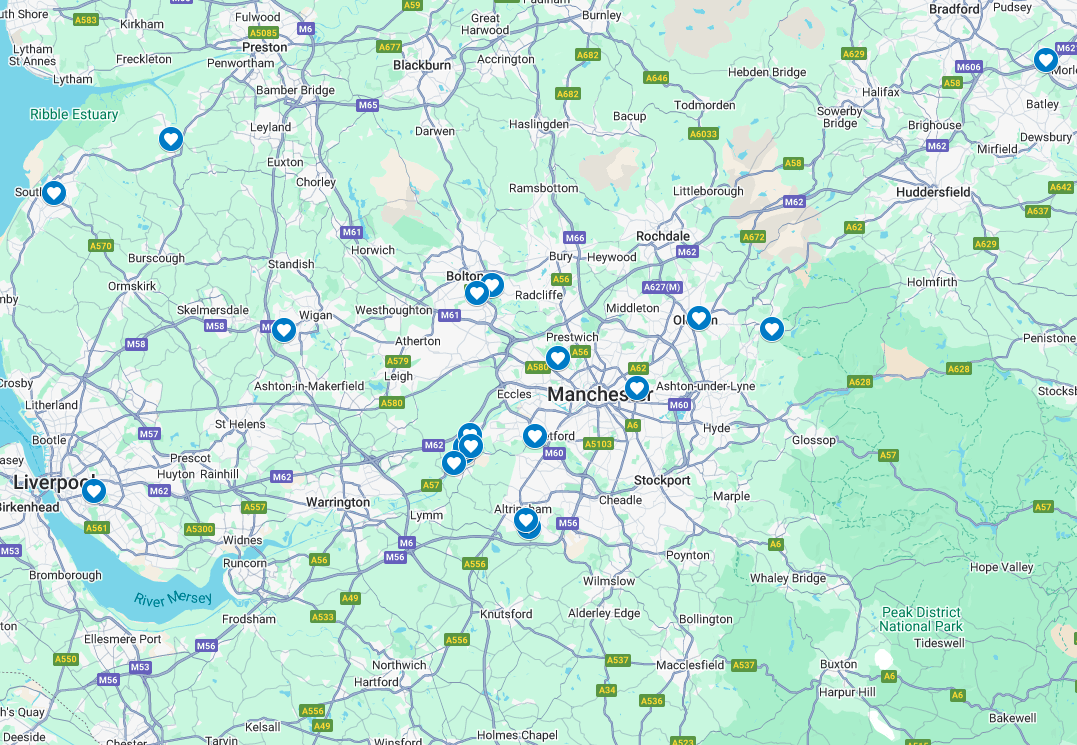How Public Transport is becoming Heart-Safe

Passenger safety is crucial for public transport providers to consider at all times. According to government statistics, there were 1.7 billion rail passenger journeys and 213 million tram journeys in 2017 alone.
Given the high volume of trips being made, it is likely that someone using public transport could fall victim to a sudden cardiac arrest, as 20% of all cardiac arrests occur in public.
The only definitive method of treatment is effective CPR and a life-saving shock from a defibrillator, therefore having access to these devices is vital. For every minute that passes without treatment, the victim’s chance of survival decreases by 10%.
Here are some of the ways public transport is prioritising heart safety.
Defibrillators in taxis
The London Ambulance Service partnered with the Licensed Taxi Drivers’ Association in 2018 to equip taxi drivers with defibrillators and the skills to assist in an emergency.
Each taxi driver involved in the pilot scheme downloaded the GoodSAM app, which integrates with the ambulance service’s computer aided dispatch (CAD) systems to display when an emergency call has been made. This allows a nearby taxi driver to step in and provide life-saving treatment during the time it takes the ambulance to arrive.
Taxi drivers in other cities are also investing in passenger heart safety: a taxi driver working for Southside Cars in Nottingham spent £1,000 of his own money to purchase a defibrillator for his cab, while one taxi company in Moray became the first to be equipped with defibrillators in Scotland when they bought from defibshop.
Trains and train station defibrillators
Train stations are common places to find public-access defibrillators because of the high volume of passengers that frequently pass through them. If someone were to fall victim to a cardiac arrest on-board a train though, the logistics for a medical professional to reach the patient can be difficult and cause delays in treatment.
Virgin Trains is dedicated to helping to solve this problem and provide a heart-safe service for passengers, having installed Cardiac Science Powerheart G3 defibrillators on each of their 390 Pendolino trains.
With rail travel increasing, particularly in major cities, defibrillators are an essential piece of equipment for all trains to give all passengers the best chance of survival in a cardiac emergency.
Trams and light rail
Edinburgh’s tram network has made customer safety a priority by partnering with St John’s Ambulance and the city’s public access defibrillator project. In 2017, defibshop supplied Edinburgh Trams with Philips HeartStart FRx AEDs. These were placed on each of their 27 trams. We hope to see tram networks in other cities following in their footsteps.
AEDs on aeroplanes
According to the Resuscitation Council, airlines are required to train cabin crew in first aid and provide a first aid kit on board. Defibrillators are not a legal requirement for aircrafts, despite 1,000 people dying as a result of cardiac arrest on commercial flights each year.
Being 40,000ft in the sky means getting immediate medical attention from a professional is unlikely. In instances such as these, access to a defibrillator gives a victim the best chance of survival if they were to suffer a cardiac arrest onboard a flight.
British Airways, Ryanair and Jet2 are among a number of airlines who have taken steps to provide heart-safe flights for passengers, with all three carrying AEDs on their flights out of the UK.
Find out more about defibrillators for public transport
If you work in public transport, particularly in a health and safety capacity, understanding the benefits of AEDs – and the risks of not having them installed – is vital. Take a look at our public transport defibrillator bundles, which equip you with everything needed to respond to a sudden cardiac arrest.
If you have any questions about defibrillator costs, legislation or use, defibshop is committed to equipping everyone with the skills and knowledge to save a life. For more advice, speak to one of our product specialists on 0161 776 7422 or fill out our Contact Form.
Image by Rudy and Peter Skitterians from Pixbay.












